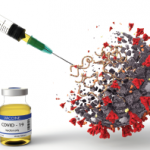Taken together, this series of presentations highlights important safety concerns with JAK inhibitor therapy but should be interpreted in light of important considerations regarding generalizability. The trial intentionally recruited only patients with RA at high CVD risk; even in these higher risk individuals, it was only the patients at highest risk (e.g., those older than 65, current or former smokers, past VTE event) who experienced a risk that was greater than corresponding risks for TNF inhibitors. Despite the newly narrowed FDA indication and updated Boxed Warnings for JAK inhibitors, it is likely that many clinicians will still find JAK inhibitors to be an important option for many patients with RA, especially those without strong CV or VTE risk factors.
PREVENTION
Switching topics, the potential to prevent or delay progression to RA in at-risk but asymptomatic patients who may have subclinical disease is a topic of high interest. Rheumatologists and their patients likely would value treatment with demonstrable effectiveness for prevention.
Abstract 0957: Vitamin D and marine n-3 fatty acid supplementation and prevention of autoimmune disease in the VITAL randomized controlled trial5 Research by Hahn J, et al.
The association between vitamin D sufficiency and a reduced risk of incident autoimmune disease has been a long-observed phenomenon. However, past work supporting this association has suffered from non-interventional study designs, inadequately dosed vitamin D regimens (e.g., 400 IU/day) or concerns regarding the potential for substantial confounding.
The large-scale Vitamin D and Omega-3 Trial (VITAL), a U.S., double-blind, placebo-controlled trial, randomized men who were at least 50 years old and women who were at least 55 years old to vitamin D3 (2,000 IU/d) and/or n-3 fatty acids (1,000 mg/d) or placebo. This plenary presentation reported the effects of vitamin D3 and n-3 fatty acids upon the incidence of autoimmune disease. New-onset autoimmunity was reported by participants annually and then confirmed by medical record review by expert physicians for classification criteria.
During median follow-up of 5.3 years, confirmed autoimmune disease was diagnosed in 117 participants in the vitamin D3 group and 150 in the placebo group (HR 0.78, 95% CI 0.61–1.00, P=0.04). Confirmed autoimmune disease was diagnosed in 123 participants in the n-3 fatty acids group and 144 in the placebo group (HR 0.85, 95% CI 0.67–1.09). RA and polymyalgia rheumatic were among the more commonly occurring incident autoimmune conditions.
Results from this study provide new experimental evidence that sufficiently dosed vitamin D results in a lower risk for new-onset autoimmune conditions, and these findings likely represent an important public health message. This trial’s results may offer rheumatologists the opportunity to provide practical advice for those who may be concerned about developing autoimmune conditions in the future.



